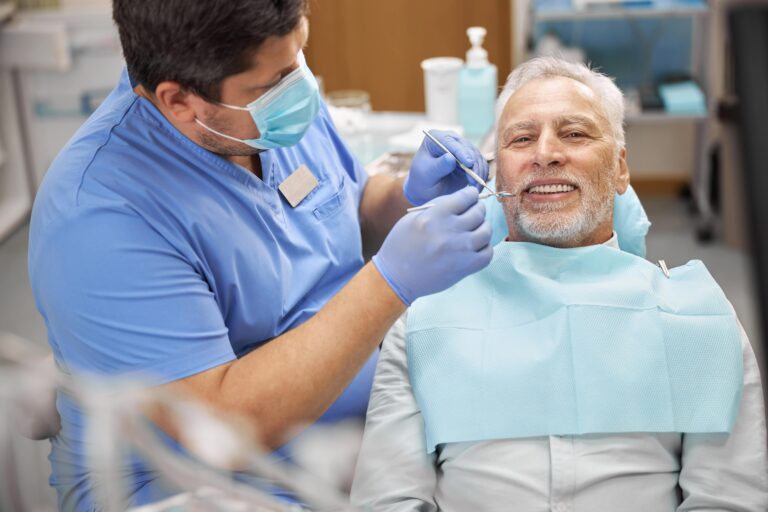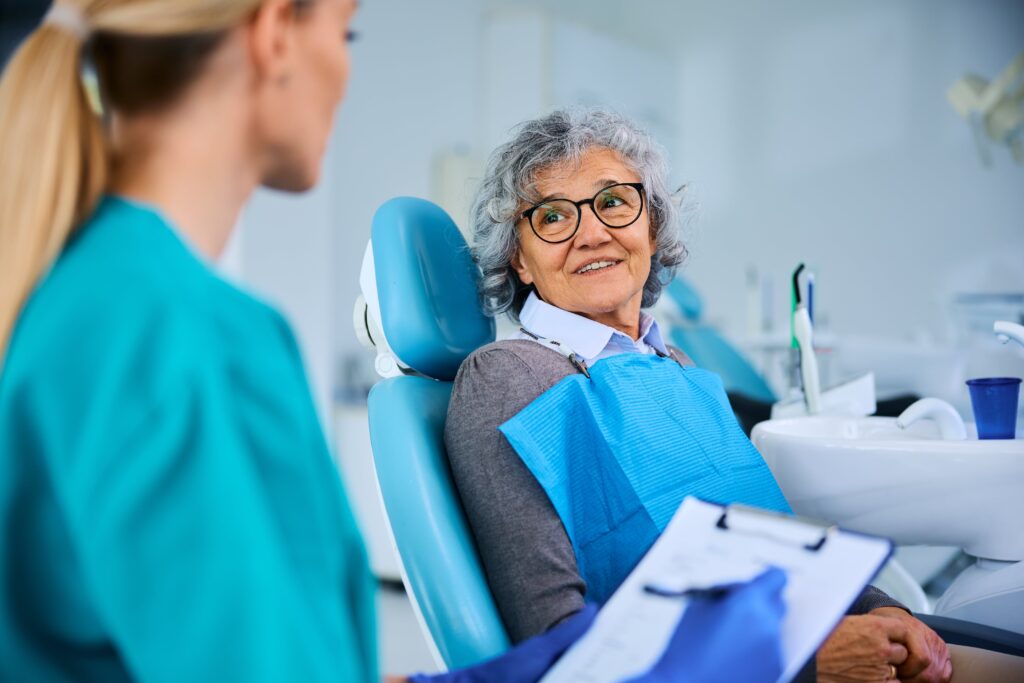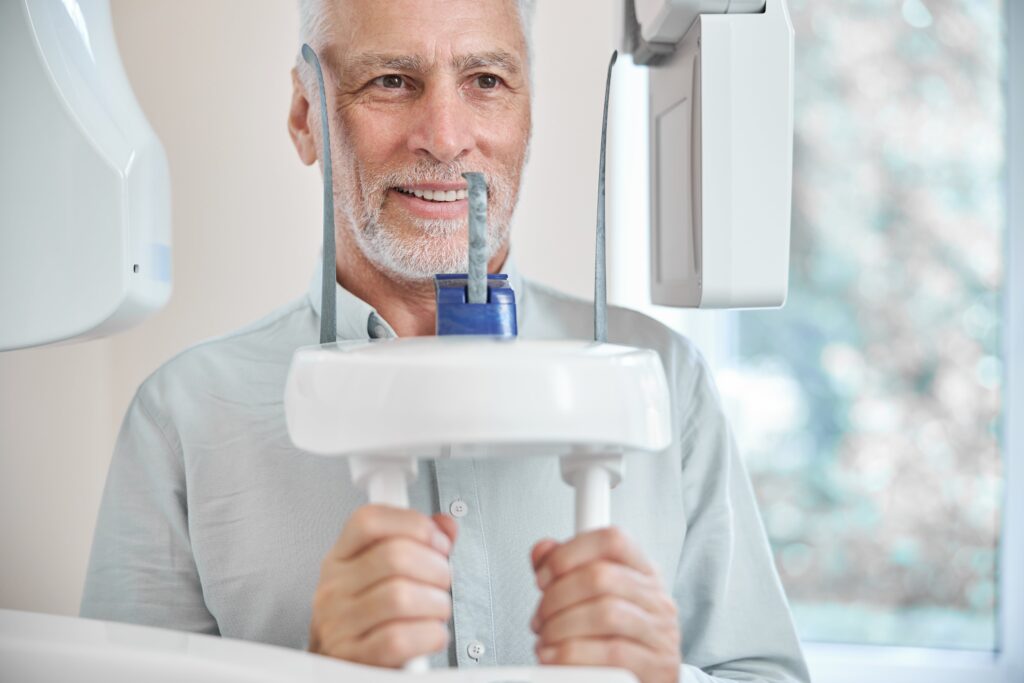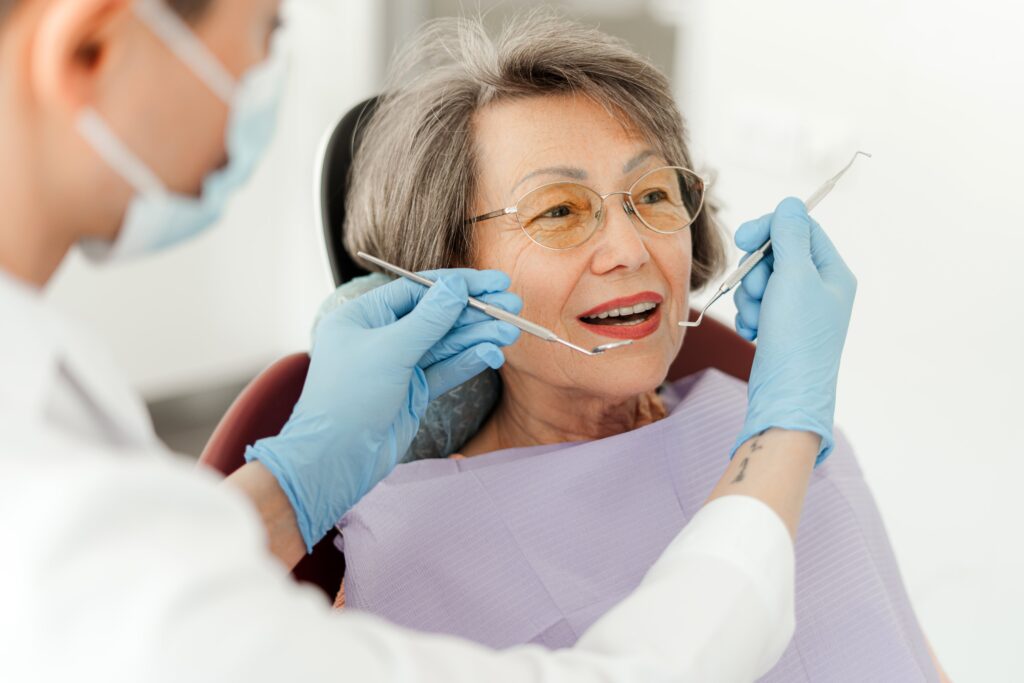Senior Oral Health: A Comprehensive Guide to Caring for Your Smile
Maintaining dental health in seniors is essential for overall well-being. Oral hygiene for seniors helps prevent many common issues like gum disease, tooth decay, and bad breath. Healthy teeth and gums also contribute to better nutrition, as seniors are able to eat a wider variety of foods comfortably. Furthermore, oral health in the elderly is linked to preventing severe conditions such as heart disease and diabetes. Through proper care, seniors can enjoy a higher quality of life and reduced healthcare costs. The importance of oral care for seniors cannot be overstated.
Understanding the significance of oral health in seniors
Oral health in seniors is crucial for overall well-being. Good dental hygiene can prevent painful conditions like tooth decay and gum disease. Without proper care, older adults risk losing teeth, making eating difficult. This can lead to poor nutrition and even weight loss. Oral infections can also impact other health conditions, such as diabetes and heart disease. Let’s not forget the social aspect; a healthy smile can boost confidence and improve social interactions. Therefore, maintaining oral hygiene is key for seniors to lead happy, healthy lives.
Impact of aging on oral health
As people age, their oral health faces unique challenges. Saliva production often decreases, leading to dry mouth. This can cause discomfort and increase the risk of cavities. Gums may recede, exposing tooth roots to decay. Tooth enamel naturally wears down over time, making teeth more vulnerable. Seniors might also face difficulties with dexterity, affecting their ability to brush and floss properly. Additionally, medications taken for various health issues can impact oral health. Regular dental check-ups have become even more crucial as preventive measures.
Common Oral Health Issues in Seniors
As people age, they often experience a range of oral health issues. Common problems include dry mouth, which can be uncomfortable and lead to cavities. Gum disease is another widespread concern, causing swollen or bleeding gums. Tooth decay becomes more prevalent due to receding gums exposing the roots. Oral cancer risks also increase with age. Seniors often have sensitive teeth from thinning enamel. Poor-fitting dentures can cause sores and discomfort. Early detection and preventive measures are essential for maintaining oral health in elderly individuals.
Overview of common dental problems in older adults
As people age, their oral health often faces several challenges. Dry mouth is frequent due to medications and medical conditions, making it uncomfortable and leading to cavities. Gum disease is prevalent, causing swelling and bleeding gums. Tooth decay rises with exposed roots from receding gums. Seniors are also at higher risk for oral cancer. Sensitive teeth are common because of thinning enamel. Poor-fitting dentures can cause sores and discomfort. Early detection and preventive measures are essential for maintaining a healthy smile.
Preventive measures and early intervention
Regular dental check-ups are crucial for early detection of issues. Seniors should brush their teeth twice daily with fluoride toothpaste. Flossing daily helps remove plaque between teeth. Using an antibacterial mouthwash can reduce bacteria and plaque. Seniors should stay hydrated to combat dry mouths. Limiting sugary snacks and drinks prevents tooth decay. Denture wearers must clean their dentures daily to prevent infections. Early intervention can halt the progress of gum disease. Awareness and proactive care lead to a healthier smile.
Daily Oral Care Routine for Seniors
Seniors need to brush their teeth twice daily using fluoride toothpaste to prevent cavities. An electric toothbrush can be more effective and easier to handle. Flossing once a day helps remove plaque between teeth, reducing gum disease risk. Antibacterial mouthwash can enhance cleanliness by targeting bacteria that cause oral issues. Drinking plenty of water keeps the mouth moist, combating dry mouth. Regularly inspecting the mouth for any unusual signs or symptoms ensures early detection of problems. Daily care promotes optimal senior oral hygiene and overall health.
Effective oral hygiene practices for seniors
Seniors should brush their teeth twice daily with fluoride toothpaste to fight cavities. Opting for an electric toothbrush can make the process easier and more efficient. Flossing once a day is crucial to remove plaque between teeth. Antibacterial mouthwash can help eliminate harmful bacteria. Drinking plenty of water aids in maintaining a moist mouth, which is essential for overall oral health. Regularly checking for any unusual signs ensures issues are caught early. Consistent and careful hygiene practices significantly enhance oral health in elderly individuals.
Choosing the right oral care products
Selecting the best oral care products can significantly enhance senior dental hygiene. Look for fluoride toothpaste to help prevent cavities and strengthen enamel. An electric toothbrush with soft bristles can make brushing easier and more effective for seniors with limited dexterity. Antibacterial mouthwash is great for reducing germs and freshening breath. Don’t forget to choose floss or interdental brushes that are gentle on sensitive gums. Finally, consider sugar-free gum to stimulate saliva production, keeping the mouth moist and healthy. Prioritizing the right products ensures optimal oral health.
Nutrition and Oral Health
A balanced diet is crucial for maintaining oral health in seniors. Nutrients like calcium and vitamin D strengthen teeth and bones. Fiber-rich foods, such as vegetables and whole grains, help clean teeth and stimulate saliva production. Avoid sticky, sugary snacks that can lead to cavities. Hydration is equally vital, as dry mouth increases the risk of dental issues. Seniors should incorporate dairy products for their high calcium content. Understanding the role of nutrition empowers seniors to make healthier dietary choices, positively impacting their oral hygiene.
The role of nutrition in maintaining senior oral health
Nutrition plays a crucial role in maintaining good oral health in seniors. Calcium and vitamin D are essential for strong teeth and bones. Foods like dairy products, leafy greens, and fortified cereals provide these nutrients. Fiber-rich foods, such as fruits and vegetables, help clean teeth naturally and boost saliva production. Limiting sugary snacks is important to prevent cavities. Staying hydrated combats dry mouth, which can lead to dental issues. By prioritizing a balanced diet, seniors can significantly improve their oral hygiene, ensuring healthier smiles.
Foods and beverages that promote oral health
A diet rich in essential nutrients is vital for elderly oral health importance. Dairy products like milk, cheese, and yogurt provide calcium and phosphates, strengthening teeth and bones. Crunchy fruits and vegetables, such as apples and carrots, act as natural toothbrushes, cleaning teeth and stimulating gums. Green and black teas contain polyphenols that combat bacteria and plaque. Nuts and seeds offer essential oils and minerals supportive of gum health. Additionally, drinking plenty of water helps wash away food particles and bacteria, keeping the mouth clean and hydrated.
Dental Visits and Regular Check-Ups
Importance of dental visits and regular check-ups for seniors
Regular dental visits are essential for maintaining oral health in seniors. They help detect issues like gum disease, cavities, and oral cancer early. Early detection makes treatment easier and more effective. Professional cleanings can remove plaque and tartar that regular brushing might miss. Seniors often have unique dental needs, so personalized care is crucial. Regular check-ups also provide an opportunity for dentists to offer tailored advice on oral hygiene practices. This proactive approach supports overall health and improves quality of life for older adults.
How to find the right dentist for senior oral care
Finding the right dentist for senior oral care involves a few key steps. First, look for dentists who specialize in geriatric dentistry. Check their experience and training in handling elderly patients. It’s essential to read reviews or seek recommendations from friends or family. Visiting the dental office for a consultation can provide insight into the dentist’s approach and the staff’s friendliness. Ensure the clinic is accessible and offers flexible appointment times. Lastly, verify if they accept your insurance or offer payment plans. A good fit can make all the difference in maintaining elderly oral health.
Conclusion
Senior oral health is crucial for overall well-being. Seniors should maintain a consistent oral hygiene routine and prioritize regular dental check-ups. Using appropriate dental products and following senior-specific dental care tips can make a big difference. Eating a balanced diet with tooth-friendly foods further supports oral health. Accessible dental care and finding the right dentist are essential for seniors’ comfort and health. By paying attention to these aspects, seniors can enjoy better oral health and a higher quality of life. Remember, good oral health habits can lead to a happier, healthier smile at any age.
Tips for improving senior oral health
Seniors should brush twice daily with fluoride toothpaste and use a soft-bristle toothbrush to avoid gum damage. Flossing at least once a day helps remove food particles and plaque between teeth. Using an antimicrobial mouthwash can reduce bacteria. Drinking plenty of water keeps the mouth hydrated and washes away food debris. Regular dental check-ups are crucial for early detection of issues. Eating a diet rich in fruits, vegetables, and dairy products supports strong teeth and gums. Avoid smoking and limit sugary foods to reduce the risk of cavities.
Resources and support for senior dental care
Seniors have access to a variety of resources for maintaining good oral health. Community dental clinics often provide affordable care tailored to the needs of older adults. Many insurance plans, including Medicare Advantage, offer dental benefits that can significantly reduce costs. Local senior centers frequently host dental care workshops and provide information on nearby services. Additionally, non-profit organizations like the Dental Lifeline Network offer free or discounted treatments for those in need. Family and caregivers can also play a vital role in supporting seniors by helping them maintain their oral hygiene routine.






